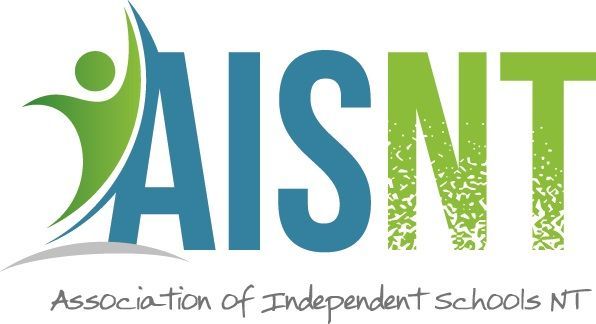You Have To Do It To Know You Can Do It
If You Do It You Get Better At It Encouragement is A Wonderful Gift
These words “wafted” into my brain at about 2.30 in the morning and in line with a presentation by Andrew Fuller, I know I am the type that, regardless of the time I MUST get up and do something about it. In this case to write it down immediately or sleep would quietly float away for the rest of the night.
The thought for the above title arose out of me watching my young grandchildren as they ploughed their way through their first season of baseball. I was so impressed with their coach, a volunteer who relates well to youngsters though he is not a school-teacher. The basis of his approach is encouragement, knowledge, patience, persistence and earned respect. Pitching is super hard in junior baseball. Players arms are yet to strengthen, the process of pitching is still to be perfected, and the size of the batters vary so much, with the greatest challenge being a small baseballer. This is because a strike can only occur if the ball is pitched between the batter’s knees and shoulders - so much easier with a six-footer! The coach supported whoever was pitching every step of the way.
I’ve watched through the season as the young players, who have ultimate belief in their coach, have noticeably improved. Despite their improvement, their coach “soldiers on” to direct and encourage them to become even better. He knows that satisfaction will come as they improve and move towards becoming reasonably accomplished. The coach is dedicated not only to give the gifted, fast learners a go but to encourage all his chargers. And of course, the coach sets the tone for the “under” coaches manning first base.
I asked my two small baseballing grandsons why they thought their coach was great and out came the golden word “encouragement”. “Not like x coach who yells ‘don’t do that do this, get on and do that.’ Their coach would say ‘good on you -you are coming on; just move your arm closer to your ear.”
He also knows all their names and is friendly, not remote but nevertheless insists on respect. He is naturally a good teacher. Yep - the golden word of teaching and also being a Principal - “encouragement!”
When I started teaching, I was a little shocked when I went into the staff room because it was a den of negativity and complaints. Negativity is poison in a school and must be fought against. Some teachers had also claimed sections of the staff room as their own! As we all know, teaching is challenging but this challenge should not be met with negativity. Making the staff room a place of positive interaction is a worthwhile challenge for a Principal - maybe naming it something less pedestrian as the “staff room”. One place I worked in called it the “Community Room”. As they say “what’s in a name?” Well, a fair bit!
I recall a teacher who, at the start of the lesson, went to the filing cabinet and probably for the fifteenth time, pulled out typed lesson 25, the lesson marked for that day. It was fine, covered what was required well but sadly lacked inspiration and perhaps ignored the fact that the current students were somewhat different from those fifteen years ago. Creativity should never be static and lessons should be current not just re-hashed.
I’m a fan of Dr Stephen Brown who comes to the NT to deliver his wisdom a couple of times each year. In his recent presentation he talked about a “Learning Culture” in a school- not only amongst students but also amongst teachers. I’m convinced that the example of learning set by teachers has a positive effect on students and the school.
It was fortuitous, when I was doing my Grad. Dip. Ed. Admin that I was able to give the students their last lesson before their year12 Australian History exam and I was able to say I was also doing an exam that afternoon as well. “Remember to take time to plan your essays, answer the question set, back up statements with evidence, have an introduction and conclusion and ruthlessly stick to your planned time so you are able to finish the paper”. I’m sure they saw me more authentically because I was also a learner and probably took more notice of what I advised. Unfortunately I didn’t follow my own advice - but only I knew that.
Dr Brown firmly believes that if a school is to truly thrive it must have a learning culture with both students and teachers being learners. Collaboration within an organisation is a way of learning with a notion that two minds are better than one. It is worth remembering in this process of learning there are three aspects: What we know; what is known; new knowledge. What we know is the knowledge of those involved. What is known is the knowledge from theory and best practice. New knowledge is the knowledge we can create together. For this to be successful a person must be a good listener, a thinker and not shy to contribute. My outspoken grandmother strangely used to talk about someone who didn’t listen but was also highly opinionated, as a “Johnny Know All”.
Collaboration doesn’t work well with a “Johnny Know All”. Something noted by Dr Brown, which made sense to me, was if you, as the Principal, want progress, it is important that you firmly believe that it will not occur effectively if your focus is about how many people you can tell what to do. Rather, it will occur via the number of people you can understand, empower and motivate. What an important, powerful and enlightening statement.
I also found three phrases Dr Brown mentioned valuable. These can be used to influence progress:
What If; I Need Your Help; Would it be helpful If?
Kurt Hahn who was a very successful and creative educator, would encourage staff and students to undertake something by saying “You are Needed.” The effect of his Educational Philosophy, is tried and true and still felt today, so many years later.
Another observation from Dr Brown’s presentation, which I have been thinking about, is that “90% of decisions are driven by emotion”.
As Principals we are all involved in an intense people game - little people, middle-sized people, big people. (You can read that as you wish). It is always worth remembering that a person has to have the opportunity of doing it and possibly initially not doing it as well as they might. They need to gain experience through practice and this is all under an umbrella of support and encouragement. They will grow indeed if they feel part of an organisation that has a strong learning culture.
Written by Chris Tudor



